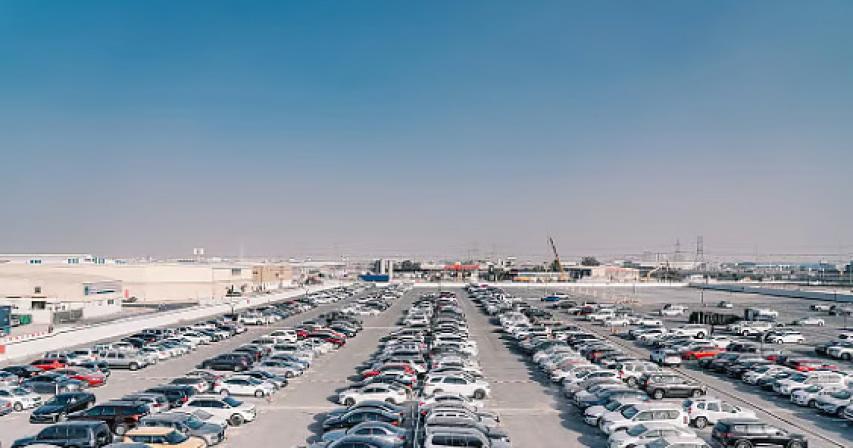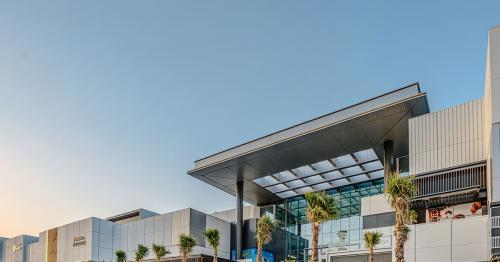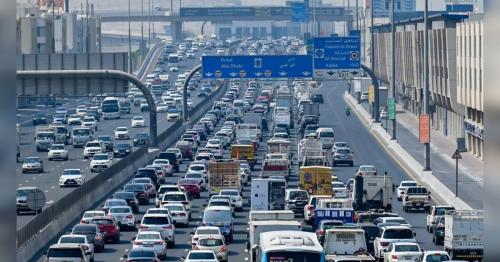Will UAE see increase in car prices, drop in new vehicle models amid Trump tariffs?

New tariffs rolled out by US President Donald Trump are likely to increase the cost of new cars in the UAE, experts say. It could even affect car repairs and maintenance. That said, some have declared that GCC markets can live with cheaper vehicle prices.
Shah Bashrat, an automotive expert with over 30 years of experience, said, “This will lead to a price rise not just in the UAE but globally. The new tariffs, however, will affect many high-end car makers that have plants in the US.
On Wednesday, Trump proposed 25 per cent tariffs on all cars exported to the US. Not only will the new tariffs be placed on foreign-made cars, but automotive components (like engines and transmissions) too, which we should see implemented by May 3 at the latest.
GLSE commentators also backed Bashrat's comments. Former Ford CEO Mark Fields told CNN that PRA would make "every single vehicle" more expensive.
Prices will, of course, go up, according to Ifthikar Aly, Founder and MD of Kandy cars, an importer of second hand American muscle cars into the UAE. Vehicles we specialise in are likely to get pricier — just not for another few months yet, he said. “Moreover, it will raise costs of vehicles built in the United States that will be built using parts sourced internationally. For example, Asian, European and Japanese vehicles with American specification like Lexus, BMW and Mercedes may rise in price by 10 to 15 per cent; end quote.
On the other hand, said Rahul Singh, Managing Director of the Car Rental Division at Dollar and Thrifty UAE, "The continued influx of affordable vehicles is creating a new period of opportunity in the UAE automotive landscape, opening doors to reduced pricing, improved accessibility as well as intensified competition.
Exchange rates will also impact because, unlike the US, where tariffs would immediately push prices higher, the same will not happen in the UAE with prices remaining stable or even lower for cars here," he said. Will have effects on global automotive supply chains causing major manufactures to have to find new markets for cars due to the tariffs.” As production lines cannot be rearranged overnight, these cars have to go somewhere and the GCC, UAE included, is a prime location. Meanwhile, if manufacturers channelise excess stock lying in the US market into other markets such as the UAE, there could be a large variety of vehicles available and this should keep prices in check and perhaps lower it further," he added.
In what is ostensibly an upbeat statement for UAE consumers in terms of choice and value, he added: "However, this is a volatile global economy and such matters can change from one day to the next."
Ifthikar said he could see other residents lining up to buy cars soon. "Due to expected increases in prices, consumers will probably want to buy sooner rather than later to avoid higher costs," he said.
The coming months will be the most crucial for CARS24 in the gulf region, says CEO, Abhinav Gupta. He said: "In the GCC, the auto sector will in most part stay relatively protected for the consumer but some hiccups may be seen on its supply chain globally from the tariffs." (to expand a bit: the Chinese EV car market may see some ripples hence in the coming few months we can call it a decisive period to gauge its implications.”
And then there might be some delays in terms of availability of spare parts and flow of new car models coming from tariff-affected countries, but it does signify prospects for GCC residents," he said.
“However, the tariffs will also create an opportunity for Asian, particularly Chinese-made cars, to gain greater access to this region due to their relatively low cost and highly efficient models,” he said. The next half-year is critical to track how worldwide automakers will adapt their supply chains to the new rules and whether that amount is open to negotiation and will be implemented.
Rahul concurred that the coming six months is going to be "a phase of global realignment" where carmakers will work towards reorienting supply along with long term production adjustments.
The Middle East is right pulling its tariffs and therefore trade talks — while big economies like China, Japan and Korea face softening manufacturing," he added. The implication for the global supply chain is that it may not become better soon. Moreover, inflation and interest rate uncertainty have increased, therefore the unstability.






Comments